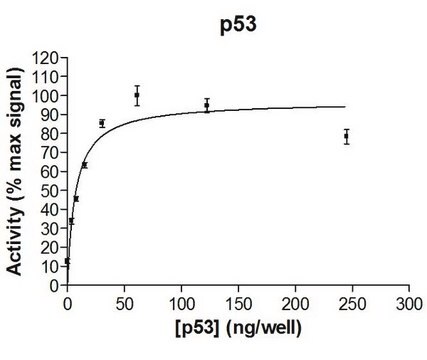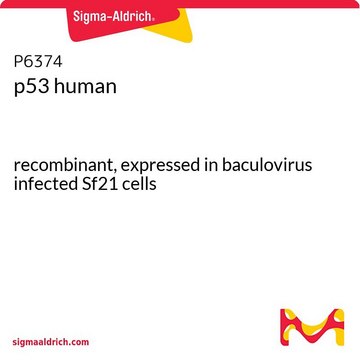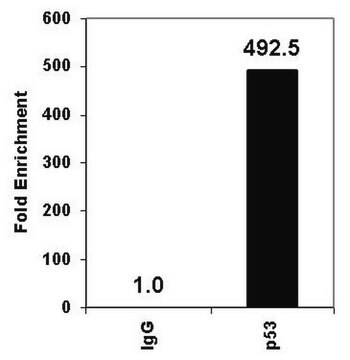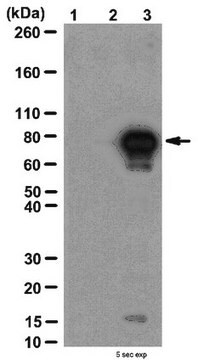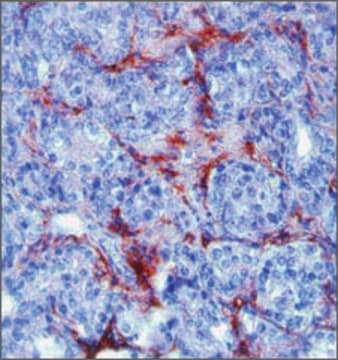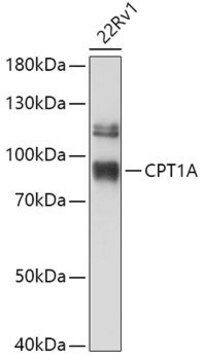ABE286
Anti-acetyl-p53 (Lys120) Antibody
from rabbit, purified by affinity chromatography
Synonym(s):
Cellular tumor antigen p53, Antigen NY-CO-13, Phosphoprotein p53, Tumor suppressor p53
About This Item
Recommended Products
biological source
rabbit
Quality Level
antibody form
affinity isolated antibody
antibody product type
primary antibodies
clone
polyclonal
purified by
affinity chromatography
species reactivity
human
species reactivity (predicted by homology)
porcine (based on 100% sequence homology), canine (based on 100% sequence homology), rabbit (based on 100% sequence homology), sheep (based on 100% sequence homology)
technique(s)
dot blot: suitable
immunoprecipitation (IP): suitable
NCBI accession no.
UniProt accession no.
shipped in
wet ice
target post-translational modification
acetylation (Lys120)
Gene Information
human ... TP53(7157)
General description
Specificity
Immunogen
Application
Immunoprecipitation Analysis: 1 µg from a representative lot immunoprecipitated acetyl-p53 in p53 transfected H1299 human lung cotransfected with or without hMOF (Prof. S. McMahon, Kimmel Cancer Center of Thomas Jefferson Medical College).
Immunoprecipitation Analysis: 1.5 µg or 4.5 µg from a representative lot immunoprecipitated endogenous acetyl-p53 in HCT116 cell lysates, which were treated with a vehicle (DMSO) or camptothecin (CPT) (Prof. S. McMahon, Kimmel Cancer Center of Thomas Jefferson Medical College).
Immunoprecipitation Analysis: 1 µg from a representative lot immunoprecipitated acetyl-p53 in H1299 cell lysates, which were transfected with either wild type p53, the 9 K/R mutant (all lysine residues except Lys120 mutated to arginine), the 10 K/R mutant (all lysine residues mutate including Lys 120), or empty vector, with or without hMOF (Prof. S. McMahon, Kimmel Cancer Center of Thomas Jefferson Medical College).
Epigenetics & Nuclear Function
Transcription Factors
Quality
Dot Blot Analysis: 1 µg/mL of this antibody detected acetyl-p53 in acetylated p53 peptides
Target description
Physical form
Storage and Stability
Analysis Note
Non-acetylated and acetylated p53 peptides
Other Notes
Disclaimer
Not finding the right product?
Try our Product Selector Tool.
Storage Class Code
12 - Non Combustible Liquids
WGK
WGK 1
Flash Point(F)
Not applicable
Flash Point(C)
Not applicable
Certificates of Analysis (COA)
Search for Certificates of Analysis (COA) by entering the products Lot/Batch Number. Lot and Batch Numbers can be found on a product’s label following the words ‘Lot’ or ‘Batch’.
Already Own This Product?
Find documentation for the products that you have recently purchased in the Document Library.
Our team of scientists has experience in all areas of research including Life Science, Material Science, Chemical Synthesis, Chromatography, Analytical and many others.
Contact Technical Service